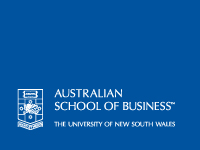Commerce/Economics - 3521
Program Summary
Faculty: Australian School of Business
Contact: Australian School of Business Student Centre
Campus: Sydney
Career: Undergraduate
Typical Duration: 4 Years
Typical UOC Per Semester: 24
Min UOC Per Semester: 3
Max UOC Per Semester: 24
Min UOC For Award: 192
UAC Code: 424001
International Entry Requirements: See International Entry Requirements
Award(s):
Bachelor of Commerce (Honours)
Bachelor of Commerce (Major)
Bachelor of Economics (Honours)
Bachelor of Economics (Major)
Information valid for students commencing 2013.
Students who commenced prior to 2013 should go to the Handbook's Previous Editions
Program Description
From Semester 1 2013, Actuarial Studies will no longer be offered as a major in the Bachelor of Commerce program. This can now be studied within the new Bachelor of Actuarial Studies program.
The Bachelor of Commerce/Bachelor of Economics (BCom/BEc) combines the professional orientation of the Bachelor of Economics program with the range of majors available through the Bachelor of Commerce program.
This combination allows students to gain greater depth and breadth in their business education than is possible in a single degree, providing students with the opportunity to complete majors in up to three business disciplines during their 4 years.
Students will complete a major in both a selected area of Commerce and the professional discipline of Economics. With approval, students with an appropriate academic record may also enrol in an additional Honours year in the relevant program offered in either the Commerce or Economics component of the combined degree.
For detailed information on the professional recognition this degree offers please visit Professional Recognition of Programs in the UNSW Online Handbook.
Program Objectives and Graduate Attributes
- demonstrate understanding and application of business knowledge, economic concepts and processes
- demonstrate critical thinking and problem solving skills
- present complex issues in coherent written statements and oral presentations
- understand, analyse and use quantitative data to assist in making economic and business decisions
- demonstrate understanding of the local and global economic context in which business and governments operate
- demonstrate understanding of the principles of working collaboratively in teams
- understand the social and ethical dimensions in their chosen disciplinary areas
Program Structure
Studies leading to the award of the Bachelor of Commerce/Bachelor of Economics combined degree normally consist of 192 UOC or 32 courses to be completed over 4 academic years.
A minimum of 84 UOC are to be in Economics courses (or approved Non-ECON courses) and a minimum of 96 UOC in ASB courses.
These UOC need to be made up of:
- Compulsory core courses
- Flexible core courses
- Major requirements
- Free electives
- General education courses
- ACCT1501 Accounting & Financial Mgt 1A (6 UOC)
- ECON1101 Microeconomics 1 (6 UOC)
- ECON1102 Macroeconomics 1 (6 UOC)
- ECON1202 Quantitative Analysis (6 UOC)
- ECON1203 Business & Economic Statistics (6 UOC)
- ECON1401 Economic Analysis (6 UOC)
- ECON2101 Microeconomics 2 (6 UOC)
- ECON2206 Introductory Econometrics (6 UOC)
- MGMT1001 Managing Organisations&People (6 UOC)
Students complete three of the following flexible core courses:
- ACCT1511 Accounting & Financial Mgt 1B (6 UOC)
- FINS1613 Business Finance (6 UOC)
- INFS1602 Info Systems in Business (6 UOC)
- LEGT1710 Business and the Law (6 UOC)
- MARK1012 Marketing Fundamentals (6 UOC)
MATH1141 or MATH1151 .ECON1203 the following course is an adequate substitute:MATH1041. A student is also entitled to an exemption from the sequence ECON1202 and ECON1203 if s/he has successfully completed any one of the following complete sequences: MATH1131 /MATH1231 or MATH1141 /MATH1241 or MATH1151 /MATH1251 .
Major requirements: Students are to complete at least one major from Economics, Econometrics and Financial Economics, AND one major offered under the Bachelor of Commerce (Please refer to Table B for approved majors). A minimum of 84 UOC of Economics courses are required for the Economics component and a minimum of 96 UOC of ASB courses are required for the Commerce component.
Free electives: These courses can be taken from within the Australian School of Business or from another Faculty.
General Education requirements, which account for 12 UOC must be taken outside the Australian School of Business. These courses allow you to select either courses that were developed especially for the General Education Program (beginning with GEN but not GENC) or to choose 'mainstream' courses that are offered in the degree programs of other faculties.
Table A Economics Majors:
- Economics
- Econometrics
- Financial Economics
- Accounting
- Business Law
- Business Strategy and Economic Management
- Finance
- Human Resource Management
- Information Systems
- International Business
- Management
- Marketing
- Taxation
General Education Requirements
Please note that students enrolled in programs within the Australian School of Business cannot take General Education courses offered by the ASB (i.e. GENC code). These restrictions also apply to the following courses:
- GENL2015 The World of Work
- GENL2021 An Introduction to the Australian Legal System
- GENL2032 Cyberspace Law 2.0
- GENL5021 Business Law Basics
Honours
Academic Rules
Students are advised to consult the Bachelor of Commerce and Bachelor of Economics Academic Rules for further information.
Fees
Professional Recognition
Further Information
Students are advised to follow requirements according to the year they commenced. For more information please visit Previous UNSW Online Handbooks.
Contact the Australian School of Business Student Centre for advice.
tel: + 61 2 9385 3189
location: Ground Floor, West Wing, Australian School of Business Building
Forms, policies and procedures
Frequently asked questions
Related Program(s)
3502 Commerce
3543 Economics
Area(s) of Specialisation









